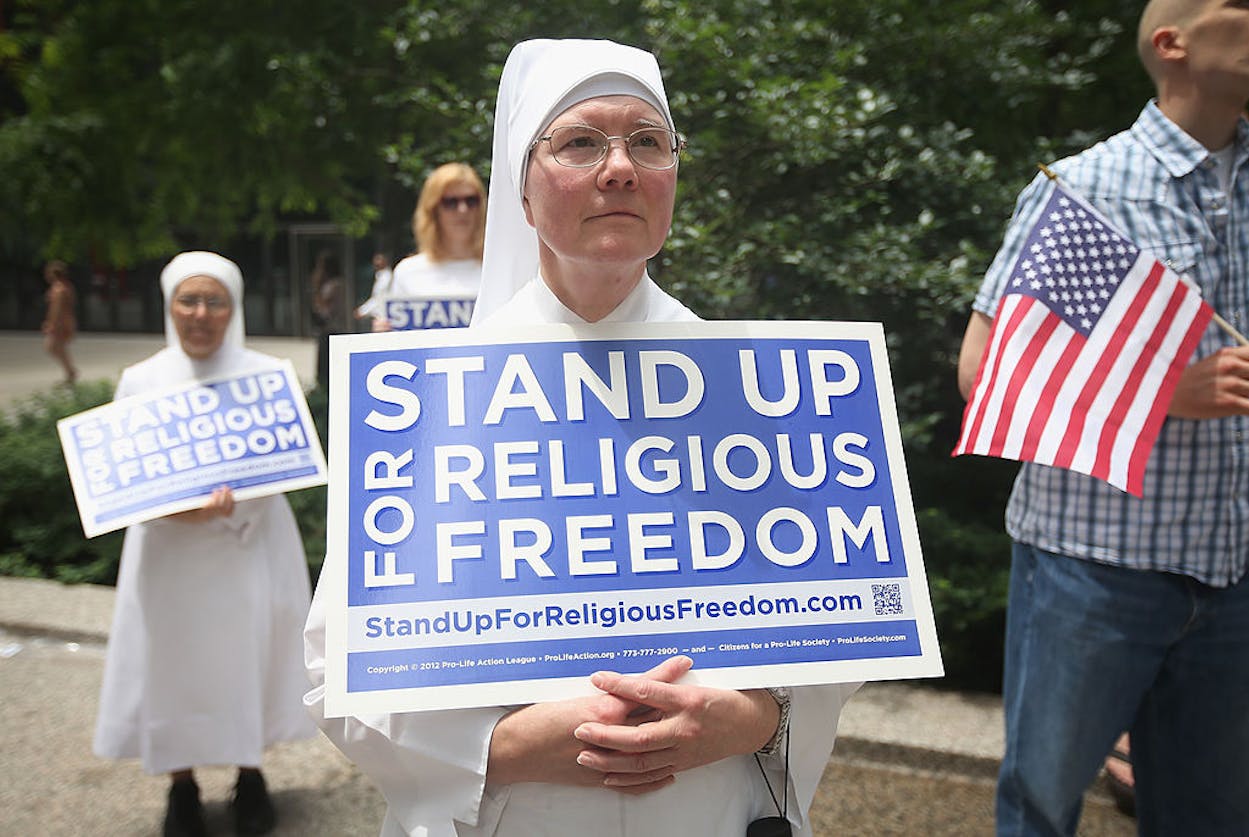In its professed zeal to protect religious Texans, the state Legislature has included within an increasing number of laws exemptions for those with “sincerely held religious beliefs.” Social conservatives believe the phrase will protect lawyers who refuse to represent gay clients or pharmacists who refuse to issue certain types of contraceptives, and the lesbian, gay, bisexual and transgender community believe the phrase will become a license to discriminate. Unfortunately, lawyers remain uncertain about the scope of “religious liberty” that it seemingly protects.
One might begin with some practical examples of conduct that are not protected under almost all current readings of the Free Exercise Clause of the First Amendment or the Religious Freedom Restoration Act (RFRA), which is the basis of almost all current litigation involving national law.
Consider Jehovah’s Witnesses who might demand that their children not receive blood transfusions because of their undoubtedly sincere belief that it is the “drinking of blood” that is prohibited by the Bible. There are now multiple cases that reject this claim of parental authority, however sincerely religious it might be, because of the obvious threat to the life of the child. Courts have therefore ordered that transfusions be given.
So one should wonder whether a religious parent could invoke a “spare the rod and spoil the child” defense if charged with child abuse; could an abusive husband quote the Bible to defend “chastisement” of his wife for disobedience? One would hope not.
In a notable case arising in the 1960s, a religious conscientious objector to the Vietnam War, whose reading of the relevant materials required only “selective” conscientious objection — to “unjust wars” — rather than to all wars, received no support from the Supreme Court. The Supreme Court had protected pacifists who did not distinguish between “just” and “unjust” wars, but picking and choosing between the two was left unprotected.
Courts have also been notably inhospitable to individuals claiming that their idiosyncratic religions require the smoking of marijuana. Quite often, the judges reveal their obvious skepticism about the “sincerity” of the religious beliefs. But an especially important Supreme Court decision in 1990 upheld the law against illegal drug use for participants in well-established Native American religious ceremonies that involved peyote. No one doubted the sincerity of the beliefs, but the “war on drugs” took precedence, according to six of the justices. It was this decision that triggered the almost unanimous passage of RFRA, which ultimately led the court in the 2015 Hobby Lobby case to adopt the catchphrase “sincerely held religious beliefs” that was seized by the Texas Legislature.
Even if one has doubts about the “religious” status of the new Church of the Holy Weed, committed to sacramental use of marijuana, that is not the case with most of the examples above. Throughout its history, the U.S. has been a breeding ground for new religions. The most important example is the Church of Jesus Christ of Latter-day Saints (Mormons), who were subjected to relentless persecution in the 19th century until the Church announced that polygamy was no longer part of its religious doctrine. The Supreme Court upheld jailing some of its polygamous leaders (and seizing the Church’s assets) because polygamy was an “action” and not merely a “belief.” But, of course, this is true of almost all the contemporary “liberties” that the Legislature wants to protect.
It cannot be the case that all actions are exempted from potential punishment if one can justify them on the basis of a “sincerely held religious belief.” Inevitably, we must pick and choose, with precious little genuine guidance from lawmakers or the Supreme Court. Ultimately, we rely far more on general cultural norms as to what we wish to tolerate at a given time. Those who support a baker’s refusal to sell a cake to be used in a same-sex marriage are unlikely to be sympathetic if the same baker, quoting another passage of Scripture, refuses to sell a cake to an interracial couple.
So it is not the case that all “religious” defenses will necessarily be accepted. An additional problem, though, is that we have trouble distinguishing “religious” and “nonreligious” beliefs. One might immediately think of belief in a supernatural (single) God (or god) who issues behavioral commands, perhaps with eternal damnation as the threatened cost of disobedience. But there are a lot of “religions” that have no such beliefs. The most prominent example is Buddhism. Indeed, the Texas Almanac suggests that there are more Buddhists in Texas than there are Jews.
It is tempting to think that proponents of “religious liberty” are all politically conservative. That is a mistake. Consider, for example, the contemporary issue of providing “sanctuary” to undocumented aliens being threatened by state and national policies. Even if one can scarcely ascribe religious sensibilities to the cities that are refusing to collaborate with the national government, that is clearly not the case with regard to members of various churches who might decide that the biblical command to “remember that you were strangers in the land of Egypt” requires standing in solidarity with their threatened neighbors. Will would-be devotees of religious liberty who are obsessed with issues such as abortion and same-sex marriage be equally sympathetic to claims made by those giving sanctuary to people that some consider to be mere criminals instead of vulnerable fellow human beings deserving of our help? At the very least, it should be clear that the four words selected by the Texas Legislature generate an almost endless set of issues and, undoubtedly, future cases to be litigated.
Sanford Levinson is the W. St. John Garwood and W. St. John Garwood, Jr. Centennial Chair in Law at The University of Texas at Austin.






